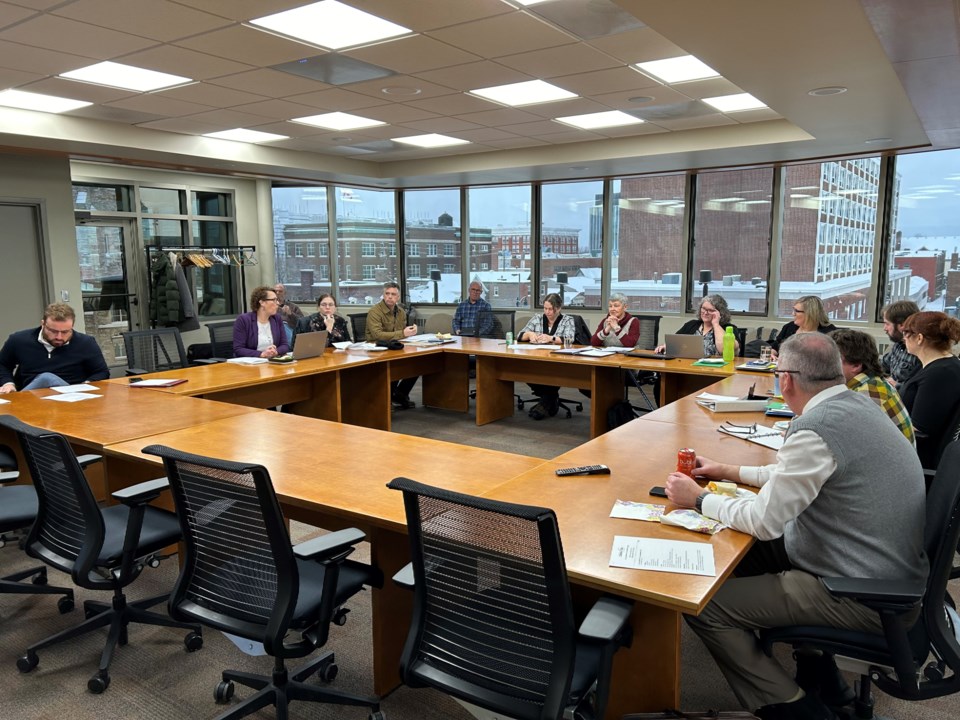THUNDER BAY – The city is looking for public input into two proposals that would reshape municipal elections and the makeup of council.
One option would maintain a hybrid system with ward councillors and two at-large councillors. The other would do away with wards entirely and move to a purely at-large system.
The uniqueness of Thunder Bay’s current electoral system allows residents to vote for both ward representatives and at-large representatives.
“You've had experience with both at the same time. That's going to be an important part of how the community looks at it. And I mean, I know that the community makes the choice, but I think the two options that are being referred to are quite different,” said Dr. Robert Williams, a Professor Emeritus of Political Science at the University of Waterloo.
An at-large councillor is elected by voters across the entire municipality, while a ward councillor is elected by voters in a specific area.
“This is always an interesting discussion to have in municipalities and even in talking to a lot of elected officials," said Williams. He points out that ward councillors are not supposed to make decisions on what is best for their ward, but the city as a whole.
Anything from infrastructure projects and social services to the city’s budget is a collective decision that affects the entire municipality, not just the wards these councillors serve, he said.
Williams said that it doesn’t always happen that way. In his experience, ward councillors will often put their ward first over the entirety of the municipality.
“I think part of the argument that those in favour of at-large take is that you put the whole city first and not a part of it. But there's a flaw in that perspective too,” Williams said.
At the federal and provincial levels, political and social values are easily identifiable through party labels. However, municipal candidates do not have that team-mentality so that voters can “gravitate to something that helps you figure out which candidate you would support,” said Williams.
Under an at-large system, voters in Thunder Bay would need to research a long list of candidates to make an informed decision.
“In an at-large election, if you've got a large number of candidates, to cast an informed vote you're going to have to do a lot of work to figure out who are your top candidates,” Williams said.
“A ward counsellor, or a candidate for ward council, traditionally would obviously work hard on understanding the ward and if they're already elected to be attentive to and responsive to the people who actually live there.
“So, that means that the kind of choice you make, it still might be a bit of a guesswork for some people. But, you've probably got an easier way to determine your choices when it's at a ward level.”
“Although, they're also proposing to keep a couple of at-large seats, which quite frankly, I can't understand why. If you're gonna have wards, why do you need two people at-large? What's going to make them different?”
“I frankly haven't found a reason why, unless it's, well, we've always done it that way. And to me, that's not enough of a reason. Just because you've done it that way doesn't always mean you need to keep it,” said Williams.
He also said keeping the hybrid system complicates a voter’s choice. "When you go to into the polling to the polling booth, you're being asked to make decisions on two different levels,” Williams said.
The city's council composition survey can be found online and paper surveys are available at City Hall and at Thunder Bay Public Library branches. A variety of in-person public feedback sessions are taking place throughout October and November.
The proposals being considered by Thunder Bay's Council Composition Committee would radically change city council and municipal elections, if passed by council. This story is part two in a series examining the potential impacts of those changes. Read part one here.
